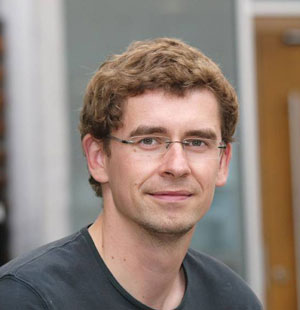Johannes Krause to Discuss Ancient Human Genomes at Institute for Advanced Study
Press Contact
Johannes Krause, Professor of Archaeology and Paleogenetics at the University of Tübingen and Director of the Max Plank Institute for the Science of Human History in Jena, will give a public lecture, “Ancient Human Genomes Suggest Three Ancestral Populations for Present-Day Europeans,” which will take place Thursday, March 19, at 5:00 p.m. in West Building Lecture Hall. This lecture is part of “Integrating Genomics and Human History: Challenges and Opportunities,” a workshop organized by the School of Historical Studies and made possible by the Dr. S.T. Lee Fund for Historical Studies.

In this lecture, Krause will explore the methods used to investigate European population history about the time of agricultural transition. Using genome data, Krause will explain how at least three ancestral groups, the Hunter-Gathers, the Early Farmers and the Ancient North Eurasians, contributed genetic material to present-day Europeans. Krause will discuss these three ancestral populations discovered from this data and explore their connection to present-day Europeans.
Krause’s research interests include pathogens from historical epidemics, as well as human evolution. Krause’s work focuses on the analysis of old to very old DNA using next-generation sequencing. He also contributed to the deciphering of the genetic heritage of Neanderthals, and managed to prove that Neanderthals and modern humans share the same language gene (FOXP2). In 2010, while working at the Max Planck Institute for Evolutionary Anthropology in Leipzig, he discovered the first genetic evidence of the Denisovans, a stone-age primeval Homo species from Siberia. With his work on the evolution of historical infectious diseases, he was able to demonstrate that most of today's plague pathogen originated in the Middle Ages.
Krause received his Ph.D. in genetics from the University of Leipzig in 2008. Krause was awarded the Newcomb Cleveland Prize by the American Association for the Advancement of Science for his work on a draft sequence of the Neanderthal genome. He is also a member of the Heidelberg Academy of Sciences and Humanities. Since June 2014 he has been Director and Scientific Member at the Max Planck Institute for the History and the Sciences in Jena.
For more information on this and other lectures at the Institute, visit www.ias.edu/events.